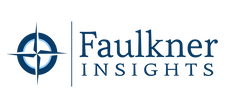 Do you remember getting new school supplies as a child at the start of each school year? The perfection of newly sharpened pencils with pristine erasers, the intoxicating smell of those fruit-scented markers, and the sharp crack of a hardback textbook’s spine the first time you opened it. Well, it’s back to school time and for most of us, those are fairly distant memories. However, dear reader, I believe we share a love of lifetime learning so here for your reading enjoyment is a list of books I recommend for insights on innovation. If you come across one that’s new to you and decide to read it, I hope you will find a bit of inspiration or a nugget of knowledge to apply in the year to come and beyond. 1. A More Beautiful Question: The Power of Inquiry to Spark Breakthrough Ideas, Warren Berger: explore the art of questioning and its application for innovation. Berger provides some simple frameworks to successfully use questioning and interesting examples of innovators whose inquiries led to breakthroughs. 2. The Lean Startup: How Today’s Entrepreneurs Use Continuous Innovation to Create Radically Successful Businesses, Eric Ries: the Lean Startup primer for anyone interested in entrepreneurship or innovation in general; somewhat technology industry focused, but principles are more broadly applicable. 3. Running Lean: Iterate from Plan A to a Plan That Works, Ash Maurya: valuable for startups; he builds on concepts from other thinkers in space (e.g. Eric Ries and Steve Blank) but gives many more practical tips and real world examples for applying lean startup principles. 4. Thinking, Fast and Slow, Daniel Kahneman: a seminal work for anyone interested in why people do what they do. Fair warning, this one is long and a bit dry and academic in parts, but I think it’s still worth it for a deep and thorough understanding of System 1 vs. System 2 thinking. 5. Inside the Box: A Proven System of Creativity for Breakthrough Results, Drew Boyd and Jacob Goldenberg: I read this one as part of the Innovation & Design MOOC offered by University of Cincinnati, but the book stands alone as as instruction manual for creative brainstorming techniques that work. 6. Change by Design: How Design Thinking Transforms Organizations and Inspires Innovation, Tim Brown: Conceptual book about design thinking with lots of IDEO examples. This isn’t a “how to” book—there’s not a lot of practical application tips, but it does have great examples from a range of companies and is fun to read. 7. The Myths of Creativity: The Truth about How Innovative Companies and People Generate Great Ideas, David Burkus: Insightful and inspiring book about creativity, useful for both individuals and entire organizations. Debunks common creativity myths and gives the message that everyone can be creative. 8. Made to Stick: Why Some Ideas Survive and Others Die, Chip Heath and Dan Heath: a great idea is only great if you can get others to remember and act on it so this book gives lots of ways to make ideas “stickier” with lots of fun examples. 9. A Whole New Mind: Why Right-Brainers Will Rule the Future, Daniel Pink: I read this several years ago and I feel like I have already seen the trends shifting as he predicts and believe they will only accelerate as we continue to move from the “information” to the “conceptual” age. 10. Influence: The Psychology of Persuasion, Robert Cialdini: This book is all about how to get people to say "yes". I actually read this book in college and still reference what I learned from it—it’s the essential guide to persuasion for marketers and market researchers. Bonus Reads: For My Fellow Researchers 11. Snoop: What Your Stuff Says About You, Sam Gosling: a psychologist’s take on what you can learn about people based on their stuff. It explores the connection between belongings and the “big five” personality traits (Openness, Conscientiousness, Extraversion, Agreeability, and Neuroticism). Great read for those who regularly conduct ethnographic/observational research. 12. Nickel & Dimed: On (Not) Getting by in America, Barbara Ehrenreich: I recommend this book for exercising your empathy muscle and getting a unique take on anthropological research. The author tells the story of her experiment to live on poverty-level wages for a time. While this book is not without detractors (namely that the experiment was conducted by an otherwise wealthy white woman who got to go back to her “real life”), I think it still paints a compelling portrait of a specific life experience. Did I miss one of your favorites? I’d love to get some of your top recommendations too so please leave a comment to this post with one of your favorite innovation titles. Note: I provided hyperlinks to each book on Amazon purely for convenience, but of course, I also recommend checking your local library or independent bookstore.
1 Comment
 I recently celebrated my 1-year anniversary of starting my own business as a consumer insights & strategy consultant, which has been cause for reflection. There are some things that turned out to be harder than I thought, others that weren’t nearly as hard as others told me they would be, and still others that were absolute surprises and delights. And of course, many lessons learned along the way. My business is still very much in its infancy, but it’s been an educational start! One thing I think I underestimated is the stress that can come with the business development side of being an entrepreneur. It’s just me, so I don’t have the pressure of ensuring other people’s livelihoods, but just knowing that if I don’t bring in the business, I don’t get paid, is quite a different feeling than getting a regular monthly paycheck from a corporate employer. That said, I really like the absolute direct link between my effort and my reward. I like that if I’m willing to take on more work, I can make more money. That sense of control makes long or odd hours totally worth it, because it’s my choice and my decision. I also love the flexibility that comes with this type of career. I tend to work in sprints and find that without the endless meetings of corporate life, for the most part, I can work when I’m at my most productive and stop working when I’ve used up all my mental energy. My work time is much more concentrated now so I can fit much more productivity into fewer hours. In an office environment, I always felt obligated to physically be there for a certain number of hours, even if I actually didn’t have anything to do or was already mentally burned-out for the day, which was just wasted time. I work out of my home now, which makes this ‘sprint scheduling’ feasible and also allows for other side benefits, like wearing comfy clothes most of the time, eating lunch from my own kitchen, having my dogs curled up at my feet while I work, and of course, the occasional impromptu dance party just because. One thing that other independent consultants warned me about was the sense of isolation—either just feeling lonely from being by yourself all day or missing the feeling of being part of a team and having other people to bounce ideas around with. I actually haven’t found that to be a huge issue for me personally for two primary reasons. One, I’m an introvert so I actually enjoy being by myself a good deal of the time (plus, I get to spend time with my husband and very high energy three-year-old son during non-working hours). And two, I proactively schedule regular one-on-one in-person networking meetings as well as attending professional events. I try to have coffee meetings or lunches with professional contacts (new and existing) once or twice per week and attend a formal or informal professional event at least once a month—things like: Meetups, Creative Mornings, NewCo, ProductCamp, etc. That last point is related to another challenge I’ve identified of being a solo-preneur—how to stay current and fresh in your field of expertise and continue your professional development. Those local events that I mentioned as well as attending carefully chosen professional conferences can provide a big boost of not only creative energy and inspiration but also technical and specialized learning. I somewhat took for granted previously having access to the vast resources of a corporate employer who really invested in people development, including regular training programs and access to best-in-class experts in a variety of fields. Now, I’m trying to nurture my own informal expert network to help fill that need—people I can use as sounding boards, subject matter experts, and mentors; a list that is as varied as previous bosses and colleagues, friends from college, my author/artist/life coach sister, and even my mathematically-gifted father-in-law. It’s my personal “village” and it’s one of my most valuable resources. The other powerful resource I rely on is my professional network—the collection of all my previous peers, team members and managers who also left our previous corporate employer to work for new corporations, agencies or even start their own businesses. I cannot imagine how I could have possibly been successful in my first year without these connections. Not only did my first clients come from these contacts, but almost my entire project list to-date can be traced back, either directly or through referrals, to this professional network. Consulting is indeed a relationship business and I’m very glad that I had 14 years to develop those relationships before making the leap to my own business. The final lesson I’m learning is to ask. It’s amazing how far you can get by simply asking: Asking for the introduction, asking for help, asking for information, asking to meet, and of course, asking for the business. As the expression goes, “The worst they can say is no,” and I’ve been amazed by how often people will say yes. Most people genuinely want to help, especially those who are starting out or starting over, and I’ve been amazed by the graciousness of both close and casual contacts—and even contacts-of-a-contact—in giving of their time, guidance, feedback, and facilitating introductions. I’ve also tried to pay it forward by sharing my time and advice with others from my network as well as mentoring in my local startup community. I’m only a little over a year in to this adventure and I know many more lessons, challenges, and pleasant surprises lay ahead. I guess the number one thing I’m learning is to enjoy the journey and to embrace the possibilities. When we’re children, we believe we can do anything; our entire lives are ahead of us and it seems possible that we could be a ballerina-princess-doctor or, my son’s current aspiration: a fire-fighter/astronaut. As we go through school, we learn—or are told—what we’re good at and what we’re not. Over time, our opportunity funnel seems to narrow until we’re defined by a single college major, then a single job description. My leap into self-employment has enlarged that funnel again as I now have the freedom to write my own job title and description—or even have multiple job titles. And for that, I am profoundly grateful. |
AuthorSarah Faulkner, Owner Faulkner Insights Archives
July 2021
Categories
All
|

 RSS Feed
RSS Feed
